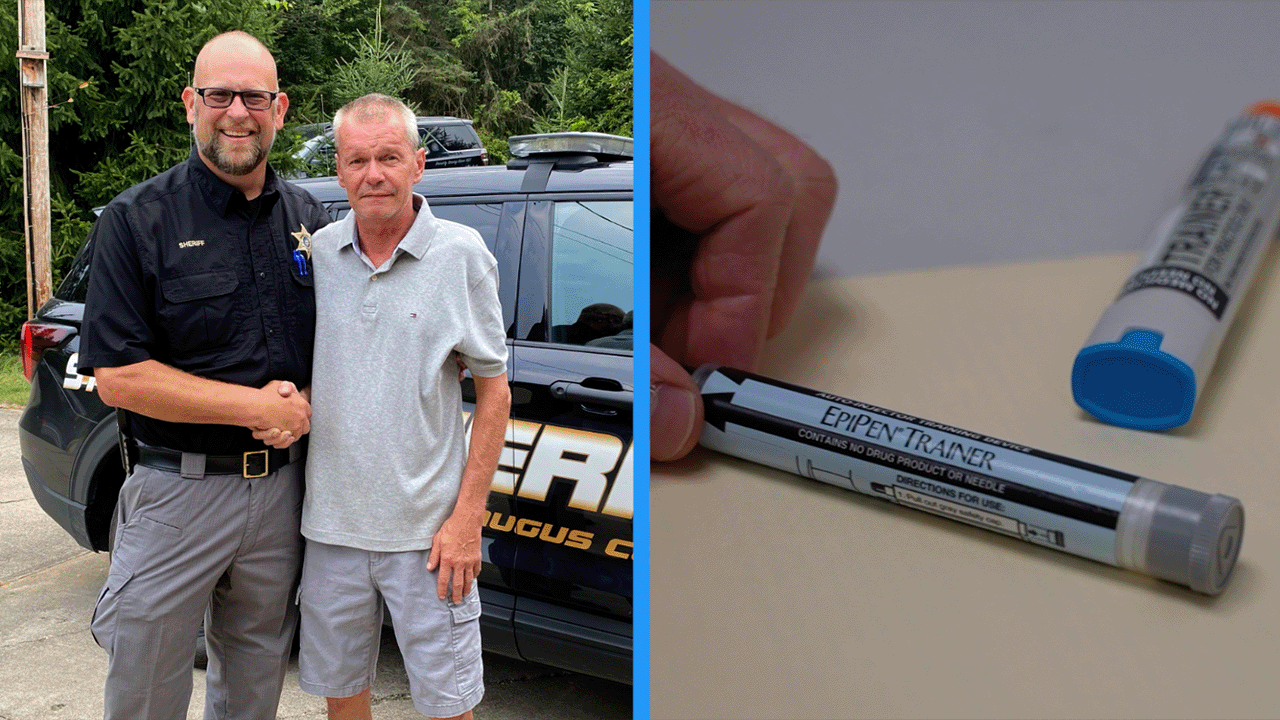The Cattaraugus County Sheriff’s Department says a new program equipping deputies with EpiPens is already making a life-saving difference.
Since launching earlier this year, deputies have used the devices twice, each time saving a person suffering from a severe allergic reaction.

Back in the summer, Deputy Andrew Schumaker was the first to respond to a call involving Stanley Cizdziel, who had been stung more than 20 times by bees while cutting trees. The multiple stings caused Cizdziel to go into anaphylactic shock, a life-threatening allergic reaction that can quickly close airways and stop breathing.

“There was limited breathing, limited muscle control, altered mental state,” Schumaker said.
Schumaker arrived within minutes and immediately recognized the signs of a severe reaction.
“It was just acknowledging the fact of the symptoms the guy was having and knowing what needed to be done at the time,” Schumaker said. “Medical staff was still a ways out; they hadn’t even gotten a crew together yet.”
Deputy Rachel Zimmer arrived shortly after, and together the two administered an EpiPen.
“I noticed that he was still lying on the ground, wasn’t breathing,” Zimmer said. “We were able to administer the EpiPen and at that point, he comes back, he was with us for a little bit and then he comes back again.”
WATCH: New EpiPen Program making a life-saving difference in Cattaraugus County
Zimmer said it was clear the man’s condition was critical.
“He absolutely needed this or else he probably wasn’t going to make it,” she said. “He told us later that everything had gone gray and he didn’t think he was going to survive.”
Doctors told Cizdziel that the rapid response and early use of epinephrine likely saved his life.
Just a few months later, the program proved its worth again.
Last month, deputies responded to another call for a person who had been stung by a bee and was having trouble breathing. Deputy Schumaker once again arrived first, administered an EpiPen, and helped stabilize the patient until EMS arrived.
Dr. Brian Walters, Medical Director for Public Safety, said the new initiative fills a critical need in a rural county like Cattaraugus, where emergency response times can be longer.
“In a large rural county, sometimes there are delays just geographically,” Dr. Walters said. “Our deputies are always on the road and able to respond, providing care in those crucial few minutes.”
Zimmer said carrying the EpiPens in their vests has already proven invaluable.
"Who knows if he would’ve made it another 10 or 15 minutes,” she said. “It’s really small, doesn’t take up much roomand it’s nice to have these.”

Sheriff Eric Butler said starting the EpiPen program earlier this year was an easy decision and the results speak for themselves.
“Nobody knew it was going to happen as quickly as it did,” Butler said. “We’ve had two saves now, so it shows the program works. In a perfect world, I’d like to see other agencies do the same thing.”
The Sheriff’s Office says the EpiPen program is part of a broader effort to train deputies in lifesaving medical care, including CPR, AED use, and naloxone administration. And for two people in Cattaraugus County, that training has already made all the difference.




